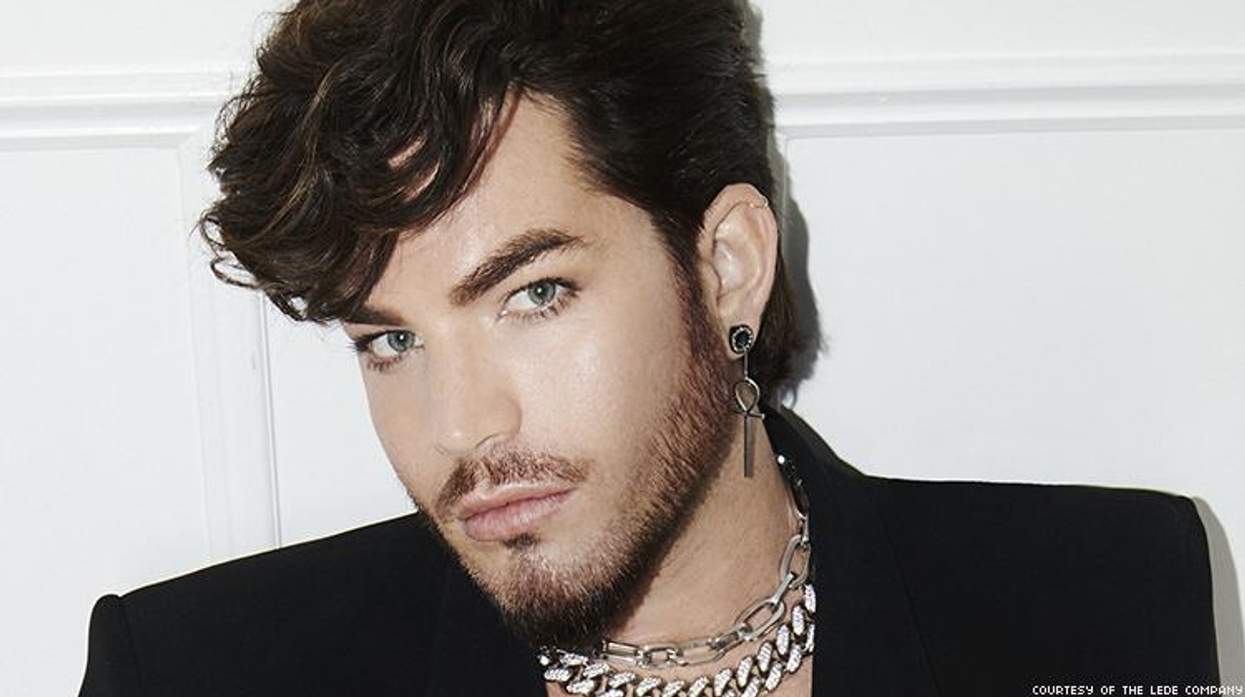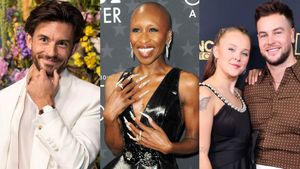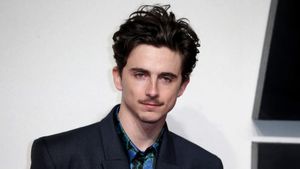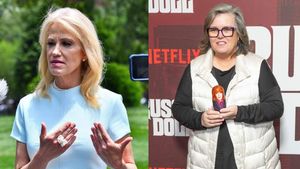Since Adam Lambert's meteoric rise 10 years ago, he's always appeared to be and do exactly what he wants.
The singer boldly came out publicly within weeks of finishing his American Idol season in 2009, a move that was considered a possible career killer at the time. Even before his declaration that he was gay, Lambert performed on the formulaic competition show with a singular panache that has yet to be matched. This year alone he's embraced his innate queer sensibility in high-profile appearances including with Queen at the Oscars and wowing Cher with a slow-burn version of her song "Believe" at the Kennedy Center Honors. Still, Lambert was hankering to make a record of pure self-expression, which he's done with the funk and soul-influenced Velvet, the first part of which drops September 27.
"Try to put me in a box / Make me something I'm not / Don't give a fuck 'cause I'm gonna take back / My superpower," Lambert belts in "Superpower," released earlier this month.
"I was at a point in my life, this crossroads type of place, where I was like, 'OK, I need to get back to why I do this and what's the real true driving force from a heart place. Not just a financial need, not just an ego thing,'" Lambert tells The Advocate about his new album.
"Why do I do this? Why do I care?" he says are the questions he asked himself ahead of making Velvet.
Never the brooding rock star -- rather, Lambert lifts audiences with his soaring vocals and over-the-top sensibility -- this February he sent a message to fans sharing that he was coming out of a "dark period." He released the confessional single "Feel Something" along with the note.
While "Feel Something" expresses yearning, "Superpower" is a declarative statement that Lambert has come out of his blue period more badass than ever.
"I did some deep digging and just got down to the bottom of [Why do I care?]. I like performing. I like connecting with people. I like sharing that space, that time with people -- whether it's three minutes of a song or a two-hour concert," Lambert says. "That is something that I cannot live without. I love it. I grew up loving it and I continue to love it."
For Velvet, Lambert reached back to his parents' vinyl collection to create a series of songs that illustrates the emotional path he was traveling. Not only did Lambert make a deeply personal album, but with the freedom of streaming, he's playing with the structure of how things are done in the music industry and releasing it in two parts. Velvet: Side A drops this month while Velvet: Side B will come out in a few months.
"It would be kind of cool to have an album where it was sort of like a slight homage to that period and all the different types of music that I heard growing up," Lambert says of a trip home where he rifled through his dad's record collection. "And what a great gift that could be to my mom and my dad."
"My mom was playing Sly and the Family Stone and Al Green and Carole King and Elton John. My dad was playing David Bowie and the Grateful Dead and Pink Floyd and the Who," Lambert says of the soundtrack of his childhood.
Regarding Velvet's '70s funk vibe, Lambert says, "I wanted to hear instruments in my music again, to feel a little more analog. When I get on stage to perform it, I wanted it to be able to be recreated with live players."
"Obviously it's not a far cry from all of my history with Queen as well," he adds.
In June, Lambert participated in a Pride Month round table for Billboard with queer musicians Tegan Quin, Hayley Kiyoko, Big Freedia, and ILoveMakonnen. At 37, Lambert and Quin, of Tegan and Sara, joked that they were the elders in the room. While Lambert is hardly over the hill, he's lived through the massive chasm of acceptance of LGBTQ performers in 2009 and now. Inevitably, a discussion of being out in the music industry circles back to that feeling of having been hemmed in.
"Ten years ago it was an entirely different ballgame than it is now," Lambert says. "What's exciting is that now we're in a place where there is a market for queer artists. People aren't boxing us into a niche anymore and keeping us over there. We're allowed to participate and play with everybody else."
Of course, Lambert spent the better part of this year paying homage to a performer who couldn't be contained -- Freddie Mercury.
Lambert's public history with Queen dates back to his American Idol when he auditioned with "Bohemian Rhapsody." He's toured with Queen's Brian May and Roger Taylor several times before, but since the movie Bohemian Rhapsody became a box office smash and Oscar contender last year, audiences at the Queen shows have become more diverse.
"After this film that came out, I think that really opened up the band. It kind of pushed them further into pop culture again," Lambert says of touring with Queen this summer. "I was looking out at the audiences and found it to be much more mixed as far as ages and races and genders. It's opened everything up."
With the upcoming release of his passion project Velvet, Lambert is reflecting on where he's come from as an out performer in the public eye. He's also aware of what came before him.
"Freddie was alive in a time where talking about alternative sexuality was completely taboo in the mainstream media and in society in general," Lambert says, adding that May and Taylor have shared stories about the great Mercury, who died in 1991.
"They were completely accepting of him as his friends and as his bandmates. They didn't see him any differently," he says.
Having blazed a trail for others by coming out 10 years ago, Lambert credits Mercury with laying some groundwork for LGBTQ people to be as authentic as possible.
"He never really denied it in the public. He never lied, which is important to note. He didn't claim to be anything he wasn't," Lambert says. "I find that for that time period, that was a type of sort of protest. He didn't assimilate. He didn't pretend."
Watch the video for "Superpower" below.





































































Charlie Kirk DID say stoning gay people was the 'perfect law' — and these other heinous quotes